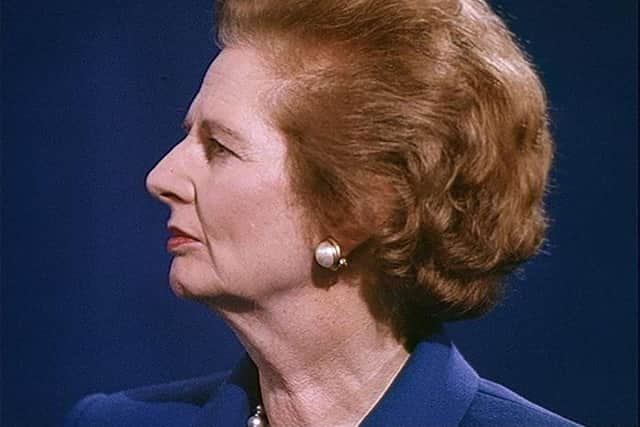A Margaret Thatcher Day? Let her rest in uneasy peace - Susan Dalgety
For those us of a certain age – say over 50 – Maggie is a divisive figure. I know a handful of people – maybe two, three at a push – who believe she was the saviour of our nation. The iron lady who, to quote equalities minister, Kemi Badenoch, ended the UK’s “national decline”.
A few days ago, Badenoch suggested that, like the Falkland Islands who celebrate Maggie T on 10 January every year, the UK should have its own annual Thatcher commemoration.
Advertisement
Hide AdAdvertisement
Hide AdSpeaking in the House of Commons, she said that Mrs Thatcher had “…ended our national decline, set Britain on a path to a brighter future and was a trailblazer for women in politics.”


The minister is entitled to her opinion of course, but to many of us, Thatcher is the woman who destroyed large swathes of British life, from our proud industrial communities to the post-war consensus of collectivism.
Even now, years after her death, she remains a potent symbol of uncaring, hard-hearted Tories who care only for the rich and powerful, while the rest of us can go to hell.
She was the figure many of us loved to hate. I spent many a Saturday in the 1980s marching down Princes Street with my comrades, shouting “Maggie, Maggie, Maggie, out, out, out” to the delight of shoppers cheering us on.
I caught a glimpse of her once, on another demo at the start of the 1986 Commonwealth Games, as she was driven past us in her prime ministerial limousine. Her face was a ghostly white, her expression stern, as she stared straight ahead, ignoring the hundreds of people screaming at her, just as she ignored striking miners and the three million unemployed and Scotland.
I will never forget the morning she resigned, beaten down, not by the millions of Britons who had grown to hate her, but by her own party. We cracked open a bottle of wine at 10am and the party was still going strong several hours later, as we celebrated the end of an era. Things could only get better, we thought, and for a while they did.
By the time Thatcher died on 8 April 2013, aged 87, a lonely, frail old lady, my visceral hatred of her had matured into mere disdain. I did not celebrate her death. Indeed, I found myself crying at Meryl Streep’s portrayal of her in the film Iron Lady. The scenes where a terrified Maggie, alone in a large London town house, cried for her dead husband Denis imbued Thatcher with a humanity she failed to show at the height of her powers.
But while I can finally see beyond the cartoon image of a cruel Prime Minister, hell bent on destroying the working class, I believe firmly that we should not mark her premiership with a special day.
Advertisement
Hide AdAdvertisement
Hide AdThatcher was an historic prime minister, the first woman to hold the post, but she divided our country in a way no politician has done in my lifetime. Let her memory rest in uneasy peace.